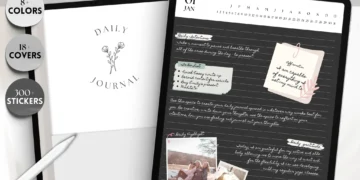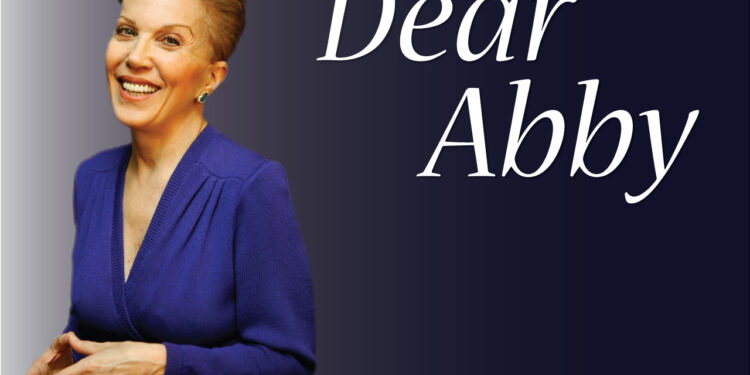In the world of advice columns, one name stands out across generations: Dear Abby. For decades, this iconic column has served as a trusted source of wisdom, empathy, and practical solutions to everyday problems. Whether you were a heartbroken teen, a frustrated spouse, or a confused parent, there was something universally comforting about knowing someone like Abby was there to listen—and answer.
From newspapers to digital formats, Dear Abby has transcended media platforms and cultural shifts, all while preserving its core values of kindness, honesty, and common sense. In this article, we’ll explore the fascinating story behind this beloved advice column, its cultural impact, and why it still matters in today’s fast-paced, information-overloaded world.
Contents
- 1 The Origins of Dear Abby
- 2 Why Dear Abby Resonated With Generations
- 3 The Relevance of Dear Abby in the Digital Age
- 4 Types of Advice That Made Dear Abby Famous
- 5 Cultural Impact of Dear Abby
- 6 A Look at Memorable Dear Abby Letters
- 7 The Secret to Abby’s Lasting Power
- 8 The Future of Advice Columns
- 9 Conclusion: Why Dear Abby Still Matters
The Origins of Dear Abby
The Woman Behind the Name
Dear Abby was created in 1956 by Pauline Phillips, who wrote under the pen name Abigail Van Buren. At the time, she was a homemaker in San Francisco who had no formal background in psychology or counseling. Yet, her gift for sharp wit, empathy, and straight talk made her column an instant success.
Interestingly, Pauline’s twin sister, Esther Lederer, was also writing a competing advice column under the name “Ann Landers.” The two sisters sparked an iconic rivalry that fascinated the public, with each gaining a massive following. But Dear Abby distinguished itself with its punchy responses and often humorous tone, becoming a staple in millions of households.
A Voice for the Common Person
From its inception, Dear Abby was not just about dispensing advice—it was about giving a voice to everyday people. Readers wrote in with deeply personal questions about marriage, friendship, work conflicts, etiquette, sexuality, and more. Abby’s replies were compassionate but unflinching, always aiming to be fair and balanced.
Why Dear Abby Resonated With Generations
A Mirror to Social Evolution
Over the decades, Dear Abby has reflected and even influenced changes in American social values. In the 1960s and 70s, the column tackled previously taboo subjects such as divorce, premarital sex, and homosexuality. While maintaining a conservative tone early on, the column gradually embraced more progressive views, evolving with its readers.
Abby was one of the first syndicated advice columnists to offer nonjudgmental responses to LGBTQ+ readers at a time when such acceptance was rare. Her replies didn’t just offer guidance—they helped normalize difficult conversations, contributing to a more open and accepting society.
Advice With a Human Touch
What set Dear Abby apart was its deeply human approach. Instead of cold, clinical solutions, Abby offered real-world wisdom rooted in compassion. Her responses weren’t always perfect, but they were authentic. Whether it was encouraging someone to forgive a sibling or advising a young person to stay true to themselves, Abby’s words felt like they came from a close friend or a wise aunt.
The Relevance of Dear Abby in the Digital Age
A Trusted Voice in a Sea of Noise
In today’s digital landscape, advice is everywhere—on social media, YouTube, Reddit, blogs, and podcasts. But the sheer volume can be overwhelming. Who can you trust? Is the advice authentic, or is it clickbait?

This is where Dear Abby still holds its ground. Despite being part of a “legacy media” format, the column has maintained credibility through decades of consistent, thoughtful advice. In a world driven by hot takes and viral drama, Abby’s voice remains refreshingly sincere and focused on genuine problem-solving.
Bridging Generations
Many readers first encountered Dear Abby through their parents or grandparents. Yet even younger generations find value in her timeless wisdom. The topics—love, loss, self-esteem, relationships—are universal. The medium may be print or digital, but the message is enduring.
Moreover, Abby’s modern successors have embraced digital platforms while preserving the column’s original spirit. Jeanne Phillips, Pauline’s daughter, now writes the column and continues the legacy with grace and cultural awareness.
Types of Advice That Made Dear Abby Famous
1. Relationship Guidance
From infidelity to awkward first dates, Dear Abby has covered it all. Her no-nonsense yet kind approach to romantic entanglements helped countless readers navigate their love lives with more clarity.
2. Family Conflicts
Whether it was a meddling mother-in-law, an estranged sibling, or generational clashes, Abby’s advice emphasized communication, boundaries, and empathy—values still relevant today.
3. Etiquette and Social Norms
At a time when Emily Post was the go-to authority on etiquette, Abby carved out a niche by offering practical advice that balanced social norms with evolving cultural dynamics.
4. Personal Growth and Empowerment
Many people wrote to Dear Abby not just for answers, but for reassurance. Whether they were dealing with low self-esteem, grief, or career decisions, Abby’s words often served as a beacon of hope and encouragement.
Cultural Impact of Dear Abby
Inspiration for Media and Entertainment
The concept of advice columns has inspired countless movies, TV shows, and books. Think of fictional characters like Carrie Bradshaw in Sex and the City or Dan Savage’s sex advice columns—each, in their own way, owes a debt to the trail Dear Abby blazed.
Social Advocacy
Beyond personal advice, Dear Abby often supported public health campaigns. The column advocated for HIV/AIDS awareness, mental health education, and organ donation—proving that advice columns could be both personal and civic-minded.
Influence on Modern Advice Platforms
Today’s advice influencers, therapists, and life coaches often operate in digital spaces, but many credit traditional advice columns as their original inspiration. The clear, empathetic, and sometimes humorous tone of Dear Abby has become a blueprint for how to connect with readers honestly and respectfully.
A Look at Memorable Dear Abby Letters
The Heartbroken Widow
One reader once asked, “Dear Abby, how do I go on living after losing the love of my life?” Abby’s response acknowledged the pain but encouraged the reader to live in honor of the love they shared. She wrote, “The love that filled your life doesn’t end—it transforms into strength and memory. Let it guide you.”
The Teenage Confession
Another letter came from a teenage boy afraid to tell his parents he was gay. Abby’s response was simple but profound: “Be honest, and give them time. Love doesn’t always speak first—but it listens.”
These are just two examples among millions, but they showcase how the column provided more than advice—it provided connection.
The Secret to Abby’s Lasting Power
What makes Dear Abby so special is that it combines the authority of journalism with the intimacy of friendship. It’s professional but personal, wise but approachable. Abby doesn’t pretend to have all the answers. What she offers is perspective, something often lost in the chaos of daily life.
Readers didn’t write in expecting miracles. They wrote because they wanted to be heard. Abby’s genius was in hearing them with both intellect and heart.
The Future of Advice Columns
With the rise of AI-driven chatbots, wellness influencers, and mental health apps, one might wonder: Is there still room for columns like Dear Abby?
Absolutely.
Human connection and empathetic storytelling will always have value. While technology can offer tools, it can’t replace the warmth and understanding that human-led advice provides. As long as people seek clarity in confusion and hope in hardship, there will be a place for Abby’s wisdom.
Conclusion: Why Dear Abby Still Matters
In a world full of instant opinions and short attention spans, Dear Abby remains a rare gem: thoughtful, patient, and profoundly human. The column has served as a compass for those lost in life’s dilemmas, offering not just solutions but solace.
To use the keyword one final time—Dear Abby isn’t just a column; it’s a cultural institution. It reminds us that even in our loneliest moments, we are never truly alone. There is always someone willing to listen, to understand, and to guide us gently back to ourselves.
So whether you’re navigating a rocky relationship, seeking emotional clarity, or simply looking for a moment of human warmth—don’t be surprised if the answer lies in a column that begins with two simple words: Dear Abby.































